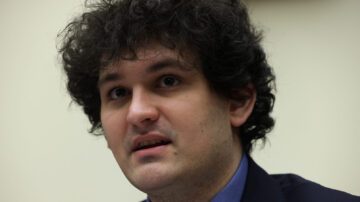Editor’s note: Thought leader Grace Ueng is CEO of Savvy Growth, a noted leadership coaching and management consultancy. Grace writes a regular column on Happiness & Leadership for WRAL TechWire. Companies hire her firm to facilitate HappinessWorks™ programs, infusing the happiness advantage into corporate culture, leading to higher productivity and results.
+++
RESEARCH TRIANGLE PARK – Upon entering remission from my severe depressive episode at the end of last year, I decided to restart piano after a four-decade hiatus to honor my mom, my first teacher. In her final days, I would be sure that her favorite, Debussy’s Clair de lune was playing in her room; her last words to me were “the music is beautiful.”
New Starts & Flow
My piano lessons and practicing have become a key part of my ongoing well-being regime. The first weekend after the delivery of my grand piano, I found myself completely in flow until past midnight, losing track of time, in pursuit of conquering the three movements of Hayden’s Sonata in C major No. 50 that my sister had sent me.
Mihaly Csikszentmihalyi, the first to identify and research “flow,” when you are completely absorbed in a challenging but doable task. His research shows people are their most creative, productive, and happy when they are in a state of flow.
“The best moments in our lives are not the passive, receptive, relaxing times . . .
The best moments usually occur if a person’s body or mind is stretched to its limits in a voluntary effort to accomplish something difficult and worthwhile.”
– Mihaly Csikszentmihalyi
We block larger chunks of time when we need to plan strategically or think creatively. When I was responsible for launching new products and programs, I would hire facilitators or assign colleagues to lead ideation sessions for our team in order to best generate new ideas. In the years that followed, when I started our consulting firm, our earliest engagements included facilitating similar sessions. Creating an environment where participants can be in a state of flow is a critical role for an effective session leader.
Experienced musicians can experience flow when they perform. Their skill matches the difficulty of the piece, they are in control, and their action appears effortless. They are focusing on the here and now to technically and emotionally perform beautifully their interpretation of the piece for their audience to enjoy.
Neurologically, our prefrontal area is temporarily inhibited in flow, triggering the feelings of distortion of time, loss of self-consciousness, and loss of our inner critic. Researchers hypothesize that the brain’s dopamine reward circuitry is stimulated which amplifies our curiosity, making us communicate freely and enjoy engaging in the creative process.
Excited to take delivery, finalize teacher selection, and take lessons after 4 decade hiatus, to honor memory of my dear Mom, my 1st teacher! (Photo corutesy of Grace Ueng)
When you do something simply because you love it and therefore, are intrinsically motivated, you can experience ongoing flow. On the other hand, when you are extrinsically motivated – working hard to avoid getting in trouble or to earn more money or a reward – this leads to only temporary upside.
The Art of Possibility
Earlier this month, my Happiness teacher Tal Ben Shahar assigned us to watch a masterclass by Ben Zander, conductor of the Boston Philharmonic Orchestra and teacher at New England Conservatory of Music. When I noted the length, I reminded myself that every assignment that Tal thoughtfully curates has a distinct purpose. Indeed, I found myself mesmerized in listening to Zander give feedback to each of the 3 artists performing that day, and the two hours moved by quickly.
I eagerly began my next piano lesson by asking my teacher, a child prodigy who then went on to earn two degrees from Juilliard, if he had heard of Zander. I learned that Teddy attended an arts boarding high school in Boston and not only knew Zander, but sat in his master class every week his junior and senior years! Teddy then suggested I watch Zander’s Ted talk and told me that his focus is on possibility. Joining the 16 million others who have also viewed his talk, I quickly realized the man is legendary, and next pored myself into his book, The Art of Possibility, that Harvard Business School Press asked him to author.
I was having lunch, years ago, with a long time advisor, updating him on my pursuits. At the end of our meal, Rick exclaimed, “You see possibilities where others do not.” I didn’t think much at the time about this comment, but his words have come back for me to reflect on in ensuing years. I appreciate Zander’s philosophy on life and leadership.
Zander’s book interweaves music and the leadership role of the conductor with the limitless of human potential. When one is starting to face a downward spiral, the Zander effect is to go the opposite direction and to broaden into the realm of new possibilities.
I share my three of my top take-aways:
- White Sheets
Zander shares how many of his peers, as conductors, believe they are omniscient. Being a maestro can be an ego driven career. After an experience where he thought one of his musicians was sitting incorrectly, in a hunched way, and not playing into the music as the composer meant the piece to be played, he learned from her outburst of feedback why and was completely enlightened and immediately changed the way he was conducting the piece in order for her to free her body. From there birthed his “white sheets”, where he placed a blank sheet of paper on each of the music stands of his orchestra for performers to write comments on the piece, including what they thought should be performed differently.
He would carefully consider each comment and then at apropos places enact a change in playing into the next performance. When he edits in a live concert, he remembers which player suggested and looks at that person when he makes that suggested modification during the performance. They grin inwardly (and perhaps even outwardly) in recognition and satisfaction when the maestro redirects play as a result of their suggestion.
It is the inclusive leader who formulates a mechanism for those he leads to provide input and then to make a change in behavior, often publicly, as a result of listening.
- Give an A
Concerned with the stress of students at top conservatories around marks and its results on inhibiting performance, Zander tells his students at the start of each semester that they have already earned an A. All they have to do to earn this is to write a letter to him dated May of the next year and explain to him why they have done so.
May, next year
Dear Mr. Zander,
I got my A because I had the courage to examine my fears and I realized they have no place in my life. I changed from someone who was scared to make a mistake in case she was noticed to someone who knows that she has a contribution to make to other people….
….I have changed from desiring anonymity to accepting the joy that comes from knowing that my music changes the world.
– Giselle
Perfectionism often inhibits expression. In his workshops, Zander often tells his students to throw fear of playing a wrong note out the window. Regular readers know that I like to say that Failure can be a good thing and to Channel your fear to your advantage.
The key to these newly stress lifted students is that they learn to live into their earned A and the resulting sound is beautiful.
- One-Buttock Playing
As Zander observed a student firmly implanted in his seat, performance too earth bound, and therefore not expressing the emotions that Chopin wished to evoke in this prelude, Zander realized, “The trouble is you’re a two buttock player!”
He encouraged the student to allow his whole body to flow sideways, urging him to catch the wave of the music with the shape of his body. Suddenly the music took flight; several in the audience gasped.
The president of a corporation in Ohio who attended this master class wrote to Zander later saying, “I was so moved that I went home and transformed my whole company into a one-buttock company.”
Zander imagines that this leader went back and spoke so passionately and surely to the people in his organization, that he straightaway hit the mark – the place of mind, body, and heart. His people suddenly remembered why they were there, and what the company was founded for. And whenever a person gets bogged down or loses track, Zander sees the CEO leaning his body toward him, eloquently portraying the whole long soaring line of their future together.
How can you give an A, provide white sheets, and encourage one-buttock playing this week?
About Grace Ueng
Grace is CEO of Savvy Growth, a leadership coaching and management consultancy founded in 2003. Her great passion to help leaders and the companies they run achieve their fullest potential combined with her empathy and ability to help leaders figure out their “why” are what clients value most.
Grace’s core offerings are one-on-one coaching for CEOs and their leadership teams, facilitating workshops on Personal Branding and Speaking Success and conducting strategic reviews for companies at a critical juncture. A TED speaker, she is hired to give motivational keynotes and lead Happiness Works™programs for companies and campuses.
A marketing strategist, Grace held leadership roles at five high growth technology ventures that successfully exited through acquisition or IPO. She started her career at Bain & Company and then worked in brand management at Clorox and General Mills. She is a graduate of MIT and Harvard Business School.
Grace and her partner, Rich Chleboski, her MIT classmate and accomplished cleantech veteran, develop and implement strategies to support the growth of impact focused companies and then coach their leaders in carrying out their strategic plans. Their expertise spans all phases of the business from evaluation through growth and liquidity.













